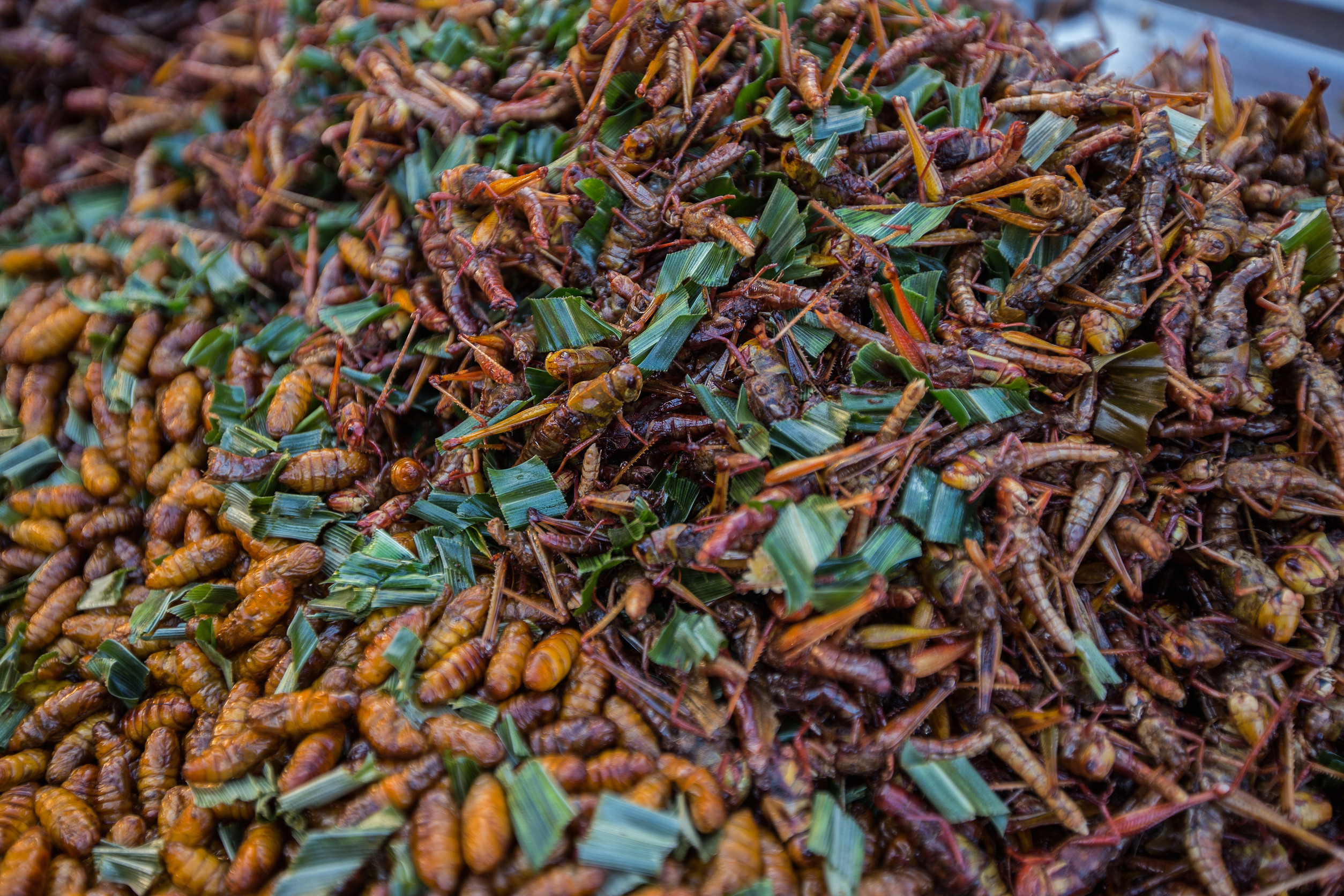
Image Source: 123rf.com
The idea of eating bugs might make some people squirm, but it’s gaining serious traction across the globe. Insects have been part of traditional diets for centuries in many cultures, offering high protein with low environmental impact. Yet, in Western countries, the practice still faces resistance due to cultural taboos and misconceptions. As global food demands rise, experts are revisiting bugs as a sustainable and efficient food source. Should we all be making room for crickets and mealworms on our plates? Here are six key reasons why normalizing bug consumption might be worth considering.
1. Insects Are Packed With Nutrients
Bugs may be small, but they pack a serious nutritional punch. Many edible insects are high in protein, fiber, healthy fats, and essential minerals like iron, zinc, and magnesium. For example, crickets contain all nine essential amino acids, making them a complete protein source. Some bugs even rival meat in terms of protein content, without the high levels of cholesterol or saturated fats. This makes them a strong contender for athletes, vegetarians, or anyone seeking nutrient-dense food options. If you’re looking for fuel with fewer calories and more benefits, insects check a lot of boxes.
2. They’re a More Sustainable Protein Source
Raising livestock for food puts an enormous strain on the planet. It takes thousands of gallons of water and massive amounts of feed to produce just a single pound of beef. In contrast, insects require far less land, water, and food to grow, and they produce a fraction of the greenhouse gases. Bugs can even thrive on food waste, turning leftovers into high-quality protein. In an era of climate change and shrinking resources, insects offer a more eco-friendly alternative to traditional animal farming. Normalizing bug consumption could significantly lower our food system’s environmental footprint.
3. Over 2 Billion People Already Eat Them
While bug-eating might seem strange in some cultures, it’s a long-standing tradition in others. According to the Food and Agriculture Organization (FAO), over 2 billion people worldwide already include insects in their diets. Countries across Asia, Africa, and South America consume a wide variety of bugs, from beetles to ants to caterpillars. These cultures not only view insects as food, but also as delicacies and sources of pride. The stigma largely exists in Western nations, driven more by perception than practicality. Learning from cultures that have long embraced insects can help shift our own food norms.
4. They Can Help Address Food Insecurity
As the global population grows, food production will need to increase by 70% by 2050 to meet demand. Insects offer a fast-growing, low-cost protein source that can be farmed in urban or rural areas alike. Their short life cycle and low resource needs make them ideal for food-scarce regions. Insects can also be used in fortified flours or protein bars, offering nourishment in shelf-stable formats. This could prove invaluable for humanitarian aid, disaster relief, or even school lunch programs in under-resourced areas. Bugs may not just be trendy—they could be life-saving.
5. They’re Already in Our Food—We Just Don’t Realize It
Surprisingly, most people have already consumed bugs without even knowing it. The FDA allows trace amounts of insect parts in food products like chocolate, peanut butter, and canned vegetables. Red food dye (cochineal or carmine) is actually made from crushed beetles. So whether you’re squeamish or not, you’ve probably already digested insects in some form. This knowledge can help soften the mental barrier to more intentional bug-based meals. If it’s already happening, why not do it consciously and get the full nutritional benefit?
6. The Market for Edible Insects Is Booming
Bug-based snacks, protein powders, and even gourmet dishes are making their way into mainstream markets. From cricket chips to mealworm pasta, food innovators are finding creative ways to introduce insects into Western diets. The edible insect market is projected to reach billions in value by the next decade. With celebrity chefs and sustainable food influencers jumping on board, the stigma is slowly starting to fade. As supply chains improve and consumer curiosity grows, bugs may soon become as common as tofu or plant-based meat. Normalizing them could be the next logical step in the evolution of food.
A Tiny Shift With Big Potential
Eating bugs might sound unusual, but it’s far from unnatural. Insects offer powerful solutions to major challenges in nutrition, sustainability, and food security. Normalizing bug consumption could reduce environmental impact, support global food systems, and introduce new, exciting flavors to our diets. Change always feels strange at first, but innovation often starts with a leap outside our comfort zones. The future of food might just be crawling right in front of us. The question is: are we ready to take a bite?
Read More
How to Beat Burnout Without Quitting Everything
12 Self-Care Tips You Should Start Using to Have a Great Life
Leave a Reply